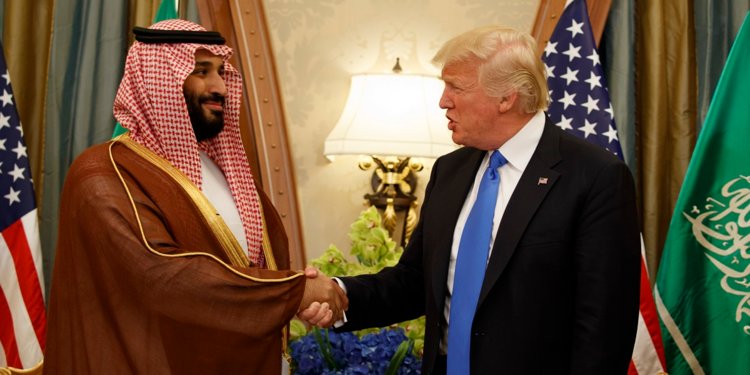Once upon a time, there was a brutal and reckless dictator of an oil-rich Arab country who, despite his well-documented excesses, was stroked and supported by the United States and other Western governments. His crimes were terrible, went the rationale, but he was modernizing his country and he was holding the line against … jihadism and Iran. Anyway, there was probably no alternative.
The ruler heard that message. He concluded that, as long as he kept supplying oil and opposing Iran, he was free to butcher his opponents and bully his neighbors.
His name, of course, was Saddam Hussein. The bet made on him by the United States and its allies directly led to Iraq’s invasion of Kuwait in 1990, and from there to the “endless wars” in the Middle East that are now almost universally bemoaned by the West’s foreign policy establishment.
And yet, 30 years later, those mandarins and the politicians they report to are blindly repeating the mistake. They are saying they abhor the blatant crimes of Saudi Arabia’s Crown Prince Mohammed bin Salman, including the murder of Post contributing columnist Jamal Khashoggi and the torture and imprisonment of women seeking greater rights. They see his bombing campaign in Yemen as a war-crime-ridden disaster.
Yet, at the summit of the Group of 20 in Osaka, Japan, a week ago, they cheerfully clustered around him. Not just President Trump but also prime ministers and presidents from the big European democracies. And not just them but also the leaders of India, South Korea and Japan, all of whom have received Mohammed bin Salman warmly in the past six months.
Ask them why, and you get an all-too-familiar response: The crown prince, who is also known as MBS, is the best chance for modernization in Saudi Arabia. He’s fighting the … extremists, and he’s allied with us and with Israel against Iran. The alternatives to him are worse.
The determination with which politicians and policymakers cling to this blinkered view can be seen in the lonely quest of Agnes Callamard, the UN special rapporteur on extrajudicial, summary or arbitrary executions. At her own initiative, Callamard conducted a five-month investigation into Khashoggi’s murder and dismemberment inside the Saudi Consulate in Istanbul last October. On June 19, Callamard released a powerful report making the case that “Mr. Khashoggi has been the victim of a deliberate, premeditated execution, an extrajudicial killing for which the state of Saudi Arabia responsible” — and that Mohammed bin Salman was almost certainly complicit in the operation and in its subsequent cover-up.
Callamard’s report called for a halt to the closed Saudi trial of 11 lower-level operatives blamed for the murder, and for an independent investigation by UN Secretary General Antonio Guterres, or the FBI. The report also called for sanctions to be imposed on Mohammed bin Salman and his foreign assets “until and unless evidence is provided and corroborated that he carries no responsibility for this execution.”
The official silence that has greeted the report has been deafening. Guterres, who has been a profile in timidity, did not respond to Callamard’s call for an investigation; as of last week, he had yet even to meet with her. Europe, too, has been silent. At the G-20 summit, Trump met Mohammed bin Salman for breakfast and declared he was doing “a spectacular job.” Later, the president answered a question about Khashoggi by saying there was no “finger directly” pointing at the crown prince — though both Callamard’s report and a CIA assessment have done just that.
During a visit to Washington last week, Callamard appeared undeterred. “Many governments have attempted to bury it and say, ‘Let’s move on,’ but that killing is not going to disappear,” she said during an appearance at the Brookings Institution. Trump notwithstanding, she is counting on justice to come from the United States. “I think this is the only place where political accountability is going to work,” she said during a meeting at The Post.
There is still some hope of that: Legislation pending in the House would require the director of national intelligence to report on those responsible for the Khashoggi murder, and would require a visa ban to be applied to them. The Senate Foreign Relations Committee is expected to consider other bills this week. But as long as Trump is president, Mohammed bin Salman is unlikely to face direct US sanction; all the congressional bills either exclude him or grant Trump the power to do so.
Like Saddam Hussein before him, Mohammed bin Salman has concluded that he is immune. Women he ordered tortured are still in prison. His planes are still bombing Yemen. And he is taking the first steps toward acquiring nuclear weapons. Because Western governments do not stop him now, they will have to do it later — when the cost is likely to be far higher.
Source: The Washington Post



























